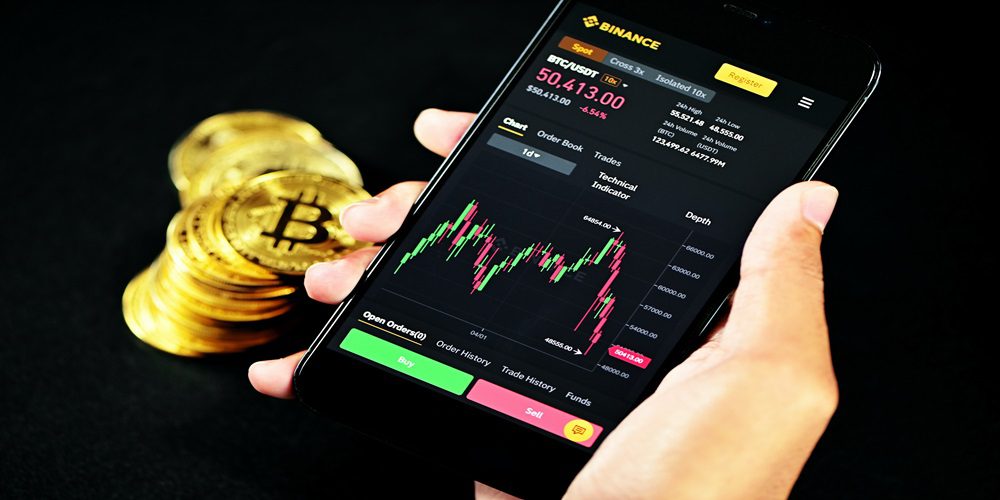Are you ready to dive into the captivating world of cryptocurrencies and embark on an exciting journey towards financial freedom? Before you do, it’s essential to ensure that your digital assets are protected against any potential threats. In this blog post, we’ll explore the top-notch security measures that you must consider when using cryptocurrency exchanges. Get ready to fortify your fortress and safeguard your investments like a true crypto warrior!
Introduction to Cryptocurrency Exchanges
Cryptocurrency exchanges are online platforms that allow users to buy, sell, and trade various types of digital currencies. These exchanges serve as the primary means for individuals to enter into the cryptocurrency market and manage their digital assets. With the growing popularity of cryptocurrencies such as Bitcoin, Ethereum, and Litecoin, there has been a significant increase in the number of cryptocurrency exchanges available.
Why Security is Important When Using Exchanges
When it comes to using cryptocurrency exchanges, there is one aspect that should never be overlooked – security. In the world of digital currencies where everything operates online and transactions are irreversible, protecting your assets and personal information is crucial.
One of the main reasons why security is important when using exchanges is the risk of hacking. With the value of cryptocurrencies increasing every day, hackers are constantly on the lookout for ways to steal funds from unsuspecting users. Exchanges are often a primary target for hackers because they hold large amounts of cryptocurrencies in one place. The unfortunate truth is that if an exchange gets hacked, there is no guarantee that you will get your money back.
Furthermore, most exchanges require users to provide personal information such as identification documents and bank account details for verification purposes. This means that if a hacker gains access to this sensitive information, they could use it for identity theft or other malicious activities.
Moreover, security breaches can also occur internally within exchanges. There have been cases where employees or administrators with insider knowledge have stolen funds from their own exchange or leaked sensitive user data.
Another reason why security is essential when using exchanges is the potential vulnerability of online wallets. Many users store their cryptocurrencies on these wallets within exchanges because it allows for easier trading and accessibility. However, this also means that if there is a breach in the exchange’s security measures, your funds stored in these wallets could be at risk.
It’s not just about preventing external threats; you also need to protect yourself against human error. On some occasions, individuals accidentally share their private keys or passwords which can lead to compromised accounts and lost funds.
Common Security Risks Associated with Cryptocurrency Exchanges
Cryptocurrency exchanges have revolutionized the way we buy and sell digital assets. However, with this new technology comes a whole set of security risks that users need to be aware of. In this section, we will discuss some of the most common security risks associated with cryptocurrency exchanges.
1. Hacking and Phishing Attacks:
Hacking attacks on cryptocurrency exchanges are becoming increasingly common as hackers target these platforms to steal user funds. They use various tactics such as phishing emails, fake websites, and malware to gain access to users’ accounts and steal their private keys or login credentials. Once they have access, hackers can transfer funds out of the account without the owner’s consent.
2. Insider Threats:
Another major risk associated with cryptocurrency exchanges is insider threats. This refers to employees or insiders within the exchange who may have unauthorized access to users’ private information and can misuse it for their own benefit or sell it on the black market. Insiders can also manipulate trading activities or create fake transactions which can result in significant losses for exchange users.
3. Lack of Regulation:
Unlike traditional financial institutions, most cryptocurrency exchanges are unregulated which means they do not have strict compliance guidelines in place for customer protection. This makes them vulnerable to frauds and scams, leaving users at risk of losing their funds if an exchange shuts down or goes bankrupt.
4. Software Vulnerabilities:
As cryptocurrency exchanges rely heavily on software systems for transactions and storage of cryptocurrencies, any vulnerabilities in these systems can pose a significant risk to user funds. For instance, bugs in smart contracts used by decentralized exchanges (DEX) can lead to theft of tokens from traders’ wallets.
5. Third-party Risks:
Many crypto exchanges partner with third-party service providers such as payment processors and custodial services that handle user funds on their behalf. If any of these third parties experience a security breach or go bankrupt, it could put user funds at risk.
Best Practices for Securing Your Exchange Account
With the rise in popularity of cryptocurrencies, there has also been an increase in security threats targeting exchanges. These online platforms are notorious for being vulnerable to hacking attacks, making it crucial for users to take necessary precautions when using them. In this section, we will discuss some best practices that can help secure your exchange account and protect your digital assets.
1. Choose a Reliable Exchange: The first step towards securing your exchange account is to choose a trustworthy and reputable platform. Do your research and look for exchanges with a proven track record of top-notch security measures and reliable customer support.
2. Enable Two-Factor Authentication (2FA): 2FA adds an extra layer of security by requiring you to enter a code from an authenticator app or receive it via SMS before logging in or making transactions on the exchange. This makes it much harder for hackers to gain access to your account even if they have your password.
3. Use Strong Passwords: It may seem obvious, but many people still use weak passwords that are easy to guess or crack. Using a combination of letters, numbers, and symbols can make it significantly more difficult for hackers to access your account.
4. Keep Your Software Updated: Exchanges regularly release updates that include vital security patches and bug fixes. Make sure you keep all the software related to cryptocurrency exchanges up-to-date, including operating systems, internet browsers, antivirus programs, etc.
5. Beware of Phishing Scams: One common tactic used by cybercriminals is phishing scams where they try to trick you into entering your login credentials on fake websites that resemble legitimate exchanges. Avoid clicking on suspicious links and always double-check the URL before entering any sensitive information.
6.Use Different Email Addresses: Consider creating a separate email address specifically for cryptocurrency-related activities instead of using your primary email account linked with personal information like name or date of birth. This reduces the risk of hackers using this information to reset your account password.
7. Monitor Your Account Regularly: Keep an eye on your exchange account regularly to spot any unusual activity that may indicate a potential security breach. It is also recommended to set up alerts for transaction confirmations or logins from new devices.
Choosing a Secure Exchange Platform
In today’s digital age, cryptocurrency has gained immense popularity and become a widely accepted form of investment worldwide. With its decentralized nature and potential for high returns, many people are turning to cryptocurrency exchanges as a means to trade and acquire different types of cryptocurrencies.
However, with this rise in popularity comes the growing concern for security on these exchanges. In recent years, there have been numerous reports of thefts, hacks, and other security breaches on various exchange platforms. This highlights the importance of carefully considering security measures when choosing a cryptocurrency exchange platform.
So how do you choose a secure exchange platform? Here are some factors to keep in mind:
1. Reputation: The reputation and track record of an exchange platform should be your first consideration. Do your research and look for reviews from other users or reputable online sources. Platforms that have been operating successfully for several years with no major incidents are generally more trustworthy.
2. Security protocols: A secure exchange platform should have strict security protocols in place to protect user accounts and funds. Look for platforms that offer two-factor authentication (2FA), which adds an extra layer of security by requiring users to enter a code sent to their mobile device before logging in or making transactions.
3. Cold storage: Cold storage is an offline method used by exchanges to store digital assets securely away from internet connectivity. This greatly reduces the risk of hacking attacks as hackers cannot access assets held in cold storage through online methods.
4. Regulations and compliance: Consider whether the exchange is regulated or compliant with industry standards such as Know Your Customer (KYC) and Anti-Money Laundering (AML) regulations. These measures may require users to provide personal identification documents before trading on the platform, but they also add an extra level of protection against fraudulent activities.
5. Insurance coverage: Some reputable exchanges offer insurance coverage for their users’ assets in case of any unexpected events such as theft or hacking attacks. While it may not be a deciding factor, it is always a good idea to choose an exchange that offers some form of protection for their users’ assets.
6. Customer support: In case of any issues or concerns, it is crucial to have reliable customer support from the exchange platform. Look for platforms with responsive and helpful customer service teams. This will give you peace of mind knowing that you can reach out for assistance if needed.
Additional Security Measures to Consider
In addition to the basic security measures discussed in the previous section, there are additional steps that cryptocurrency exchange users should consider taking to further protect their assets. These measures can help minimize the risk of theft and unauthorized access to your funds.
1. Enable two-factor authentication (2FA): Two-factor authentication requires users to provide an extra form of identification, such as a unique code sent to their phone or email, when logging into their account. This adds an extra layer of protection against potential hackers who may have obtained your login credentials.
2. Use a hardware wallet: Hardware wallets offer a more secure way to store your cryptocurrencies compared to keeping them on an exchange platform. These devices are designed specifically for storing digital currencies and keep them offline, making it difficult for hackers to access them remotely.
3. Set up withdrawal limits: Many exchanges allow users to set daily or weekly withdrawal limits on their accounts. This can help prevent large sums of money from being stolen in case your account is compromised.
4. Regularly check device and account activity: It’s important to monitor any suspicious activity on both your device and exchange account. If you notice any unauthorized logins or transactions, take immediate action by changing passwords or contacting the exchange platform’s customer support.
5. Avoid using public Wi-Fi: Public Wi-Fi networks are not secure, and using them puts you at risk for potential hacks or malware attacks. It’s best to only access your cryptocurrency accounts over a private and secured internet connection.
6. Keep software updated: Make sure you keep all devices used for cryptocurrency trading up-to-date with the latest software updates and security patches. Outdated software may contain vulnerabilities that could be exploited by hackers.
7.Install anti-virus software: Installing reputable anti-virus software on all devices used for cryptocurrency activities is crucial in protecting against viruses, malware, and other malicious threats.
8.Backup important information: It’s essential always have backups of important information such as login credentials, private keys, and wallet addresses. In the event of a device failure or hack, having backups will help you recover your accounts more quickly.
9.Be cautious of phishing scams: Be wary of any emails or messages that appear to be from a legitimate exchange platform asking for personal information. These are often phishing scams aimed at stealing your login credentials.
Ways to Protect Your Digital Assets Outside of Exchanges
As important as it is to secure your digital assets within cryptocurrency exchanges, it’s equally crucial to take steps to protect them outside of exchanges. Here are some ways you can safeguard your digital assets and minimize the risk of losing them outside of exchanges.
1. Use Cold Storage Wallets: One way to keep your coins safe is by using a cold storage wallet. These wallets store your private keys offline, making it impossible for hackers to access them remotely. Cold storage wallets come in various forms such as hardware wallets, paper wallets, and even USB drives. It’s recommended to use more than one type of cold storage wallet for added security.
2. Enable Two-Factor Authentication: Most cryptocurrency exchanges offer two-factor authentication (2FA) as an additional layer of security for user accounts. This feature requires users to provide a second form of verification (such as a code sent via email or text message) before they can log in or perform any transactions on their account. By enabling 2FA, you add an extra barrier between your assets and potential hackers.
3. Keep Your Private Keys Offline: One common mistake that crypto users make is storing their private keys digitally on online platforms such as email or cloud storage services. This puts their keys at risk for being hacked or stolen. Instead, consider writing down your private keys on paper and storing them in a secure location offline.
4. Be Wary of Phishing Scams: Another threat to digital asset security is phishing scams where fraudsters trick users into giving away sensitive information or login credentials through fake websites or emails. Always double-check the URL of websites and beware of suspicious emails asking for personal information like passwords.
5.Disperse Your Digital Assets: It might be tempting to store all your digital assets in one place for convenience sake, but this also increases the risk if that platform were ever compromised. To mitigate this risk, consider dispersing your assets across multiple wallets and platforms. This way, if one platform is hacked, you won’t lose all of your assets.
Conclusion
In conclusion, cryptocurrency exchanges can be a convenient and lucrative option for trading and investing in digital currencies. However, it is important to take necessary security measures to protect your assets from potential cyber attacks and scams. By following our tips such as using strong passwords, enabling two-factor authentication, and conducting thorough research before choosing an exchange, you can safeguard your investments and have peace of mind while navigating the ever-evolving world of cryptocurrencies. With caution and responsible actions, you can confidently use cryptocurrency exchanges to benefit from this emerging form of currency.



































